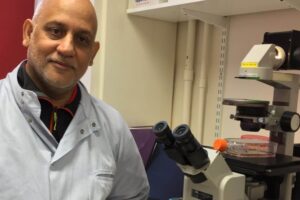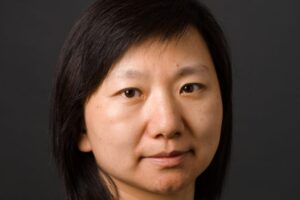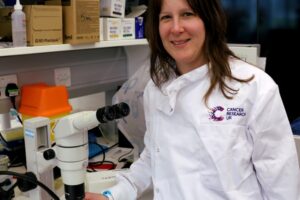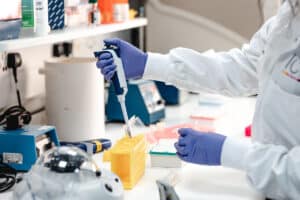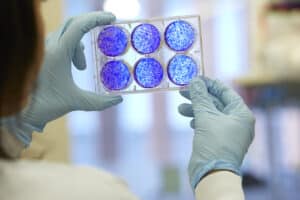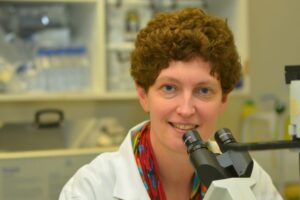Research
Developing our understanding of how bilateral neuroblastoma develops
Neuroblastoma is one of the most common solid tumours affecting children, and remains very difficult to treat.
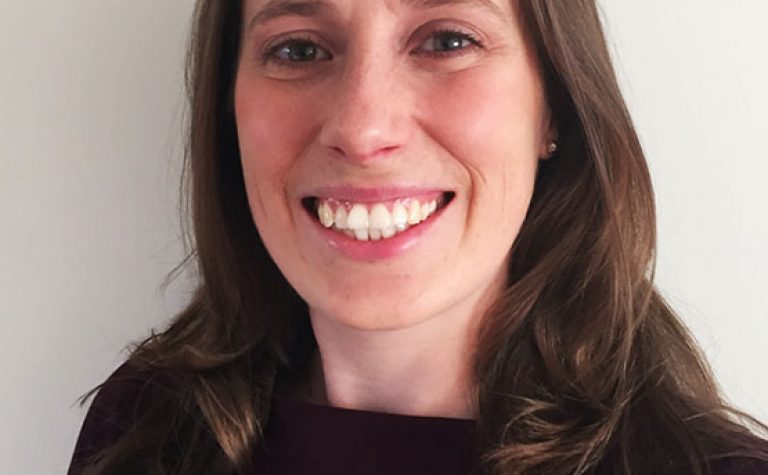
Project Details
- The developmental history of bilateral neuroblastoma
- Lead Researcher
- Sarah Farndon
- Research Centre
- UCL Institute of Child Health
- City & Institution Postcode
- Nottingham
- Start Date
- 1 January 2017
- Project Duration
- 12 months
- Grant Amount
- £65,311
Overview
In this project, Sarah Farndon (pictured above) is undertaking a whole genome study of two children with bilateral neuroblastoma, with the aim of reconstructing the life history of each tumour – that is, finding out how it started and how it developed. She will study each child’s DNA, as well as their parents’ DNA so that they can establish the precise order in which genetic mutations happened, and work out what caused each mutation – in order to work out what caused the neuroblastoma to form. We already know that there are different types of mutation. ‘Germline’ mutations are inherited from the parents and a present at conception. Somatic mutations are alterations that occur in the DNA after a child is conceived, and Sarah will look for somatic mutations which are shared by both tumours, as well as any that are unique to each tumour, in order to get a complete picture of the history of each neuroblastoma in the study. By studying pairs of bilateral tumours, we may be able to identify common sequences of events in each tumour – which could mean that our findings reveal early mutations which are common to both tumours and might be targets for treating these tumours in the future.
Potential impact
Sarah hopes that by gaining a complete picture of how these tumours developed, she might be able to identify mutations which happened at an early stage which give us clues to how to treat this cancer in the future. By defining the precise order of events in which the tumour develops, she may be able to help develop a ‘recipe’ for the genetic pathway which can cause neuroblastoma to develop. Once we understand this pathway better, we may be able to use it as a basis for future research using larger numbers of neuroblastoma samples in order to increase our understanding of these tumours. If successful, being able to predict how a tumour evolves would be of huge benefit to doctors treating children with neuroblastoma and other types of cancer, as it will enable them to know how it will develop, and its likely response to treatment. In the case of those tumours which are inherited by children from parents, it may also enable us to screen future generations and identify those at risk of developing the disease. This study will also explore what additional insights might be gained from defining mosaic mutations in childhood tumours, which would represent an important methodological shift for childhood cancer sequencing projects, including the UK’s 100,000 Genome project.
About the Research Team
Sarah is an MRes student at ICL under the principal supervision of Professor John Anderson. She studied for her undergraduate degree at Bart’s and the London School of Medicine and Dentistry and conducted a research project for ICL. In this project the UCL Great Ormond Street Institute of Child Health (ICH) will collaborate with the Wellcome Trust, Sanger Institute. ICH will provide unique access to bilateral neuroblastoma samples as well as a proven intellectual and scientific environment to allow for successful completion of the project. The Wellcome Trust, Sanger Institute is a world-leading genomics facility. It will provide the expertise and equipment to allow for generation of accurate and reproducible data, and support in accurate analysis. The collaboration of both institutions in this way is essential to enable successful completion of this project.
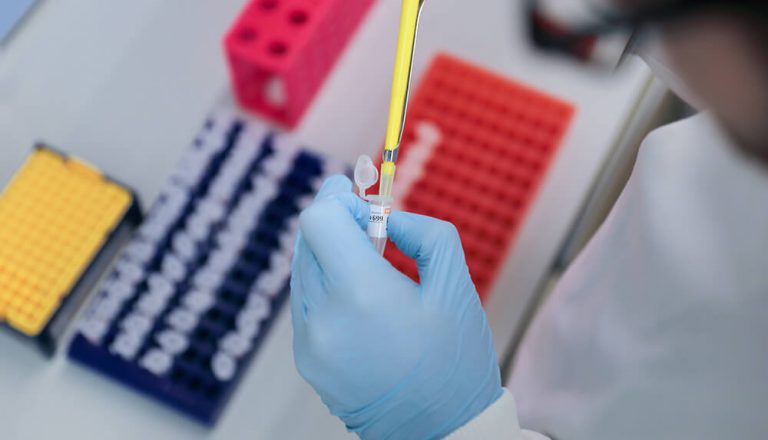
Learn more about Neuroblastoma
Neuroblastoma is one of the most common solid tumours affecting children, and remains very difficult to treat. Several studies have already used Next Generation Sequencing (NGS) to examine somatic alterations (the changes in DNA which can happen in the body’s cells which can cause cancer) to try to identify what causes neuroblastoma to form.
NGS has given scientists some amazing insights into some aspects of how these tumours start and develop, but there is still a lot to learn before we can find effective ways to treat them.
By studying bilateral neuroblastoma, we aim to reconstruct the life history of each tumour, by comparing tumour mutations, to help us understand them better.
Thank you for your support
This research project on bilateral neuroblastoma has been successfully completed. Your donations allow us to fund ground-breaking research that can improve treatments given to children with cancer. Thank you. Your help allows us to continue to find ways to drive up the chances of survival for children with cancer and reduce the toxic side effects that can affect the rest of their lives.
Other stories
We have lots of information to help you learn more about childhood cancer. From specific cancer types, to treatments and causes.

